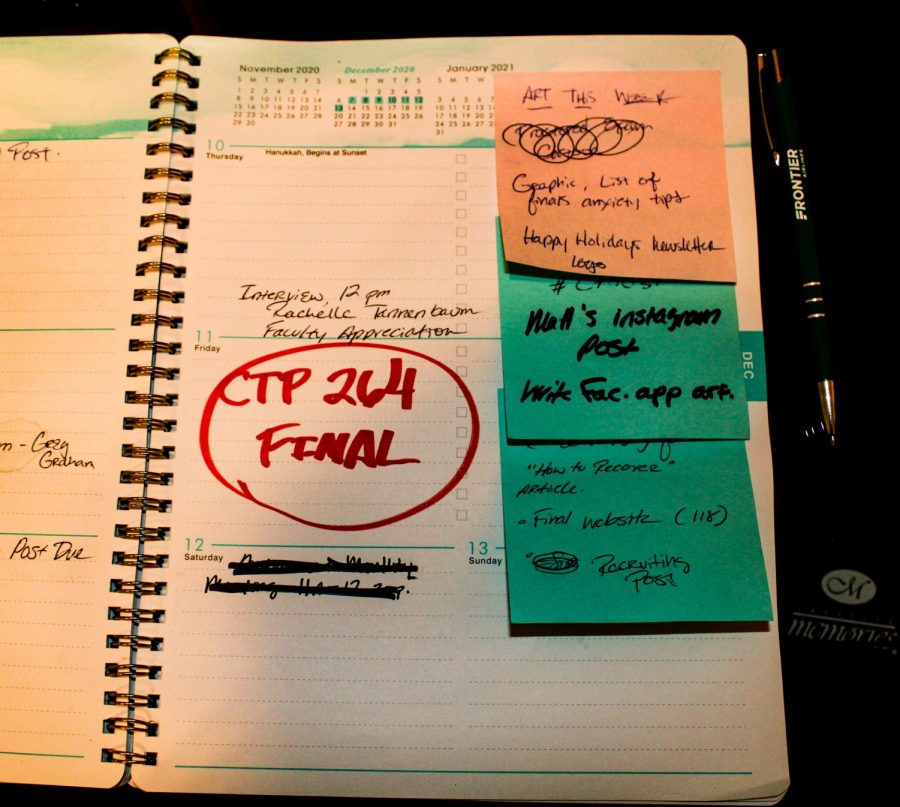Even online final exams can cause anxiety, college therapist says
AACC’s Personal and Career Counseling Coordinator Diane Hallila says test anxiety can still be an issue for students.
December 16, 2020
Although most online students will take their final exams in the comfort of their pajamas, test anxiety can still be an issue, a campus therapist said.
Diane Hallila, AACC’s personal and career counseling coordinator, offered three strategies to help students effectively manage test anxiety and prepare for finals.
Prepare your body and mind.
The day before the exam, prepare your body for a long day of testing, Hallila recommended. A good night’s sleep, proper hydration and diet all play a role in what you will remember on exam day. She recommended not changing your normal routine the day before the test.
“If you are even 1% dehydrated, your cognitive abilities get impacted,” Hallila said. “You want to have eaten a good meal. If you normally drink coffee, keep drinking coffee.”
Visualize success.
Positive thinking and visualizing an A on the final can build confidence and ease anxiety prior to an exam.
“The week leading up to that exam, picture yourself doing an amazing job,” said Hallila. “Watch yourself walk into the workspace and sit down and feel prepared and feel ready. Imagine what you’re going to feel while you’re sitting there. Imagine yourself feeling confident. Imagine yourself succeeding.”
Stay grounded through anxiety and panic attacks.
For those prone to panic attacks during exams, Hallila suggested grounding techniques such as body scanning and focusing on small, physical sensations to reduce feelings of overwhelm.
“What a panic attack is, is when your body puts you in that “fight-flight-freeze” reaction,” she said. “When it does that, your body turns off a part of your brain that you need to successfully complete exams.”
Grounding techniques include looking around the room and identifying five things that you see. Closely examine details and focus on things you feel, like what the chair underneath you feels like, or things you hear. Put gum in your mouth and focus on the change in taste.
Focusing in that way can direct your attention to something that you’re controlling, as opposed to the freeze reaction, Hallila said. It helps reconnect the thinking part of your brain so that you can access the information that you studied.
Whatever you do, don’t ignore a panic attack, Hallila advised, even if it happens during a timed exam.
“If you try to fight through a panic attack or anxiety attack, you’re going to just basically keep triggering that anxiety and it’s not likely to just disappear,” she said. “But if you use these techniques during the exam, it might take 10 minutes, but it’s going to save you in the end when you’ve regained that connection to the cognitive part of your brain.”












